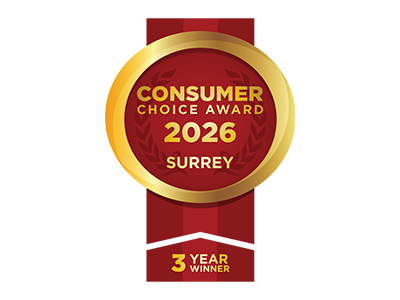Here, we’ll commit some time to examining the enterprise-level technology that SMBs are now leveraging to encourage their business’ forward momentum, and how you can leverage a solution that may not initially seem to be a fit.
The first consideration that any small business decision maker needs to take is how connected people are today. This level of connectivity produces many things, perhaps most of all heightened expectations - a fact that any SMB needs to contend with.
Historically, a small business would never invest in solutions meant to improve the customer’s experience and relationship with the company - they just didn’t have to. However, consumer demand makes it so that investing heavily in software can bring opportunities that simply wouldn’t be there otherwise.
As a result, your SMB needs to have the following solutions in its arsenal:
Customer Relationship Management
It can almost be said that, if your business doesn’t use a CRM, you aren’t really in business. That’s how crucial a CRM system can be nowadays. With hundreds of options out there, there are those that are unquestionably meant for the enterprise user, as well as plenty of options dedicated to a particular industry’s needs. These particular solutions take the benefits of the CRM and integrate different options that are precisely suited to a specific industry vertical.
One of the biggest small-business benefits of a CRM has to be how it can automate a significant amount of tasks that once were handled by multiple employees - a relatively larger chunk of its workforce (and payroll) than a larger competitor would be concerned with. This makes the CRM that much more valuable to a small business, as it reduces the manpower needed to complete business-critical tasks through automation. By integrating your customer relationships with your scheduling, your payroll, and other concerns, a CRM helps to make your business and its operations more streamlined.
Supply Chain Management
The demands of the customer are more crucial than ever to meet, especially for today’s smaller manufacturer. This means that the supply chain (procurement, manufacturing, fulfillment, and distribution) needs to smoothly work in coordination with its different parts. This is made easier by leveraging a single Supply Chain Management platform. Some of the options that these platforms often include, like Enterprise Resource Planning (ERP) software, are the same that are found in a CRM. This makes it easier to combine and consolidate software solutions so that users have that much less to learn to keep business moving.
Marketing Automation
Much like was said regarding the CRM, today’s small business doesn’t really exist without some kind of online presence. Some businesses will have an entire website created, while some stick to social media profiles. If you’re looking to boost your own business’ revenue generation (and why wouldn’t you be), building up your online presence is both an affordable and an effective means of doing so. Pairing this presence with automated systems can help you to nurture leads while simultaneously speeding up business and reducing operational costs.
This is how it works: your website captures leads. Once you have these leads, your marketing automation solution takes your captured information and integrates it with the CRM - saving you from the considerable task of doing it yourself. The end result, more worthwhile conversations that ideally end in more closed sales.
With the tools that are available today, it is amazing that more businesses aren’t leveraging them to cut costs and accomplish more. Don’t you want to get out ahead? The IT professionals at Coleman Technologies can help by deploying the ones that fit your business’ operations. For more information, call us at (604) 513-9428.



